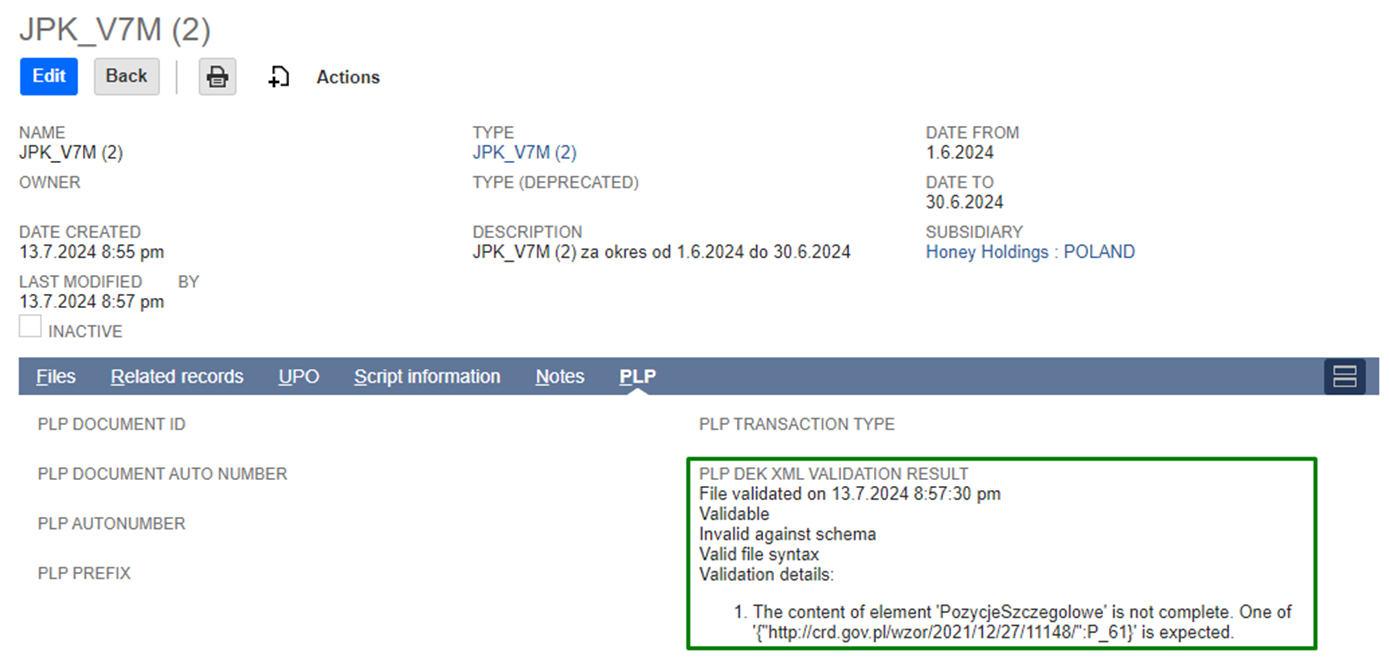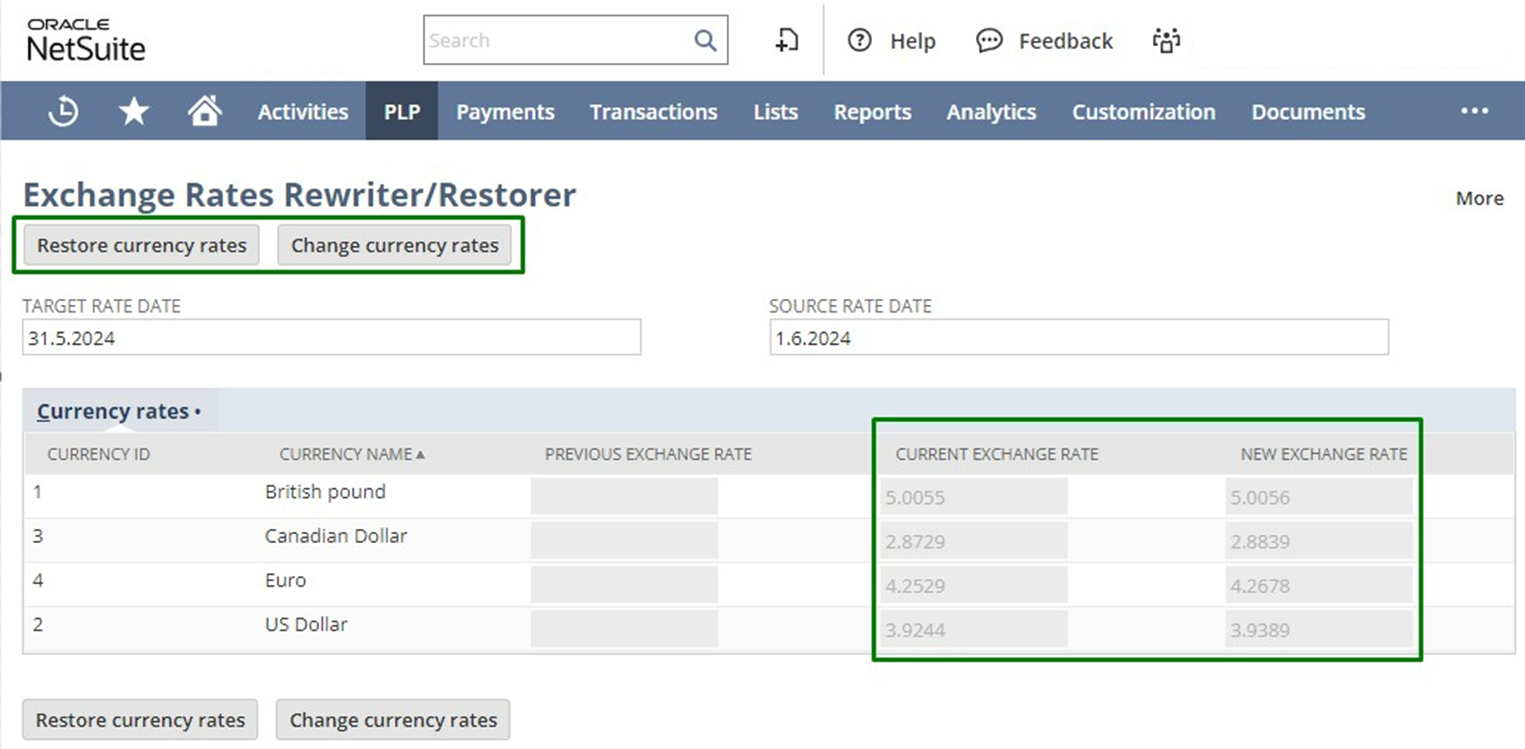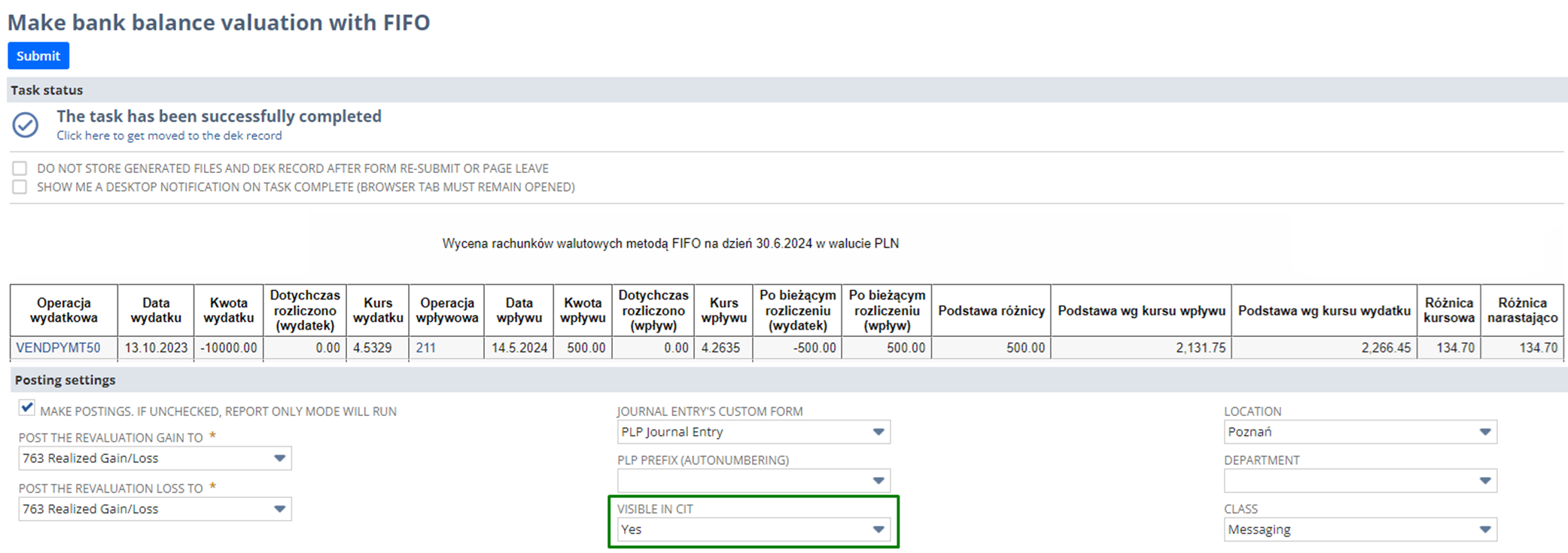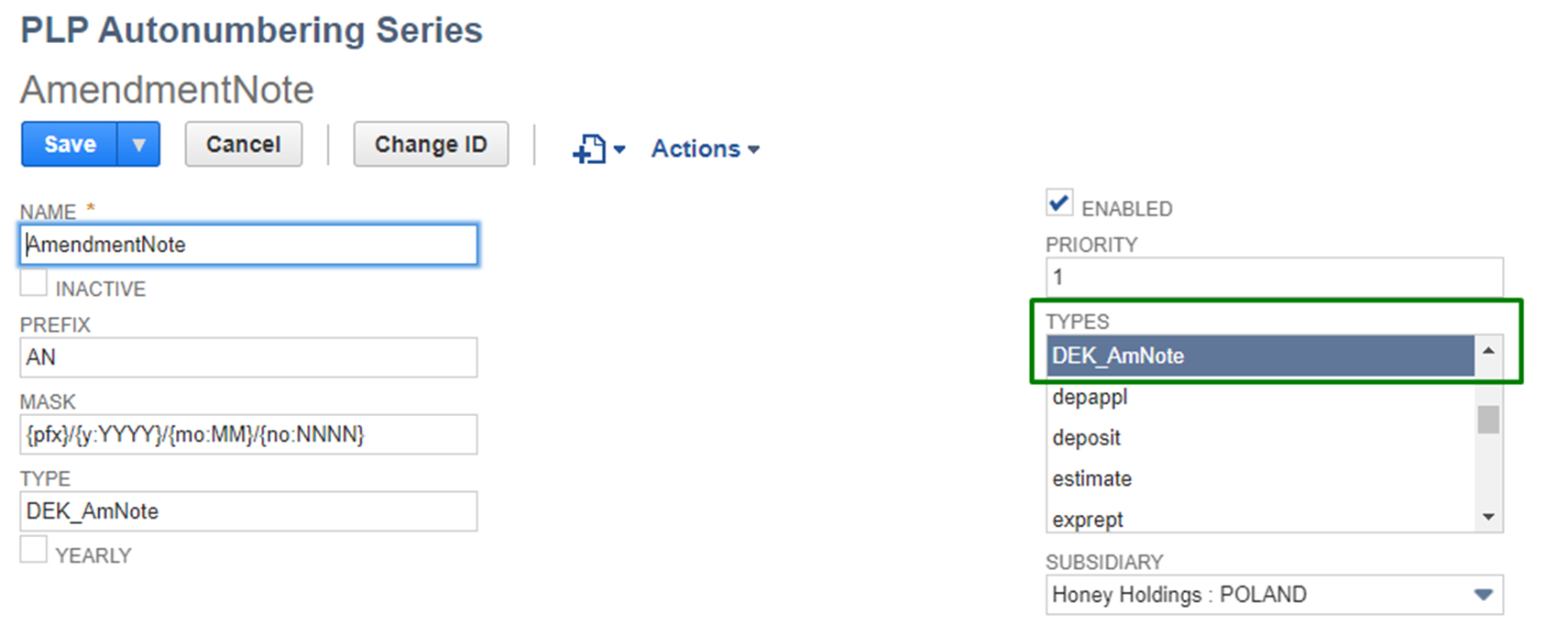From this article you will learn:
- the new functionalities of Oracle NetSuite PLP Package 2024.9;
- the new improvements of Oracle NetSuite PLP Package 2024.9.
Advanced Polish Localization Package (Advanced PLP) provides an extension of a native functionality in NetSuite Oracle. It is a set of designed modules intended to fully support your financial NetSuite system in compliance with the Polish requirements stated in the Polish Accounting Act. We regularly update the PLP module and so we would like to announce a new version of Oracle NetSuite Advanced Polish Localization Package 2024.9 software. Our release notes provide information on the features and improvements in each release.

FUNCTIONALITIES:
The process of validating tax declarations and JPK files in .xml format has been expanded to include the function of recording the results of verification of compliance with the Ministry of Finance schema. The following information is stored in the system:
- validation date;
- confirmation whether the document is subject to verification;
- schema compliance status;
- syntax validation status;
- if any irregularities are detected, details regarding verification.

Exchange Rates Rewriter is a new module designed to streamline the month-end closing process and support setting the correct exchange rates of the National Bank of Poland (NBP) for the last day of the month. This is a necessary functionality for calculating bank account valuations or open settlements.
Using the module, you can collectively update the NBP exchange rate for all active foreign currencies, as well as restore the original values after calculating Open Balances Revaluations.

The process of sending documents to the e-invoice system can be automated by appropriately configuring a script run according to a specified schedule.

Additional parameters related to the process:
- Date from, date to – range of dates for which the process is to be run;
- Subsidiary – company for which the process is to be automated;
- Accounting book – book from which transactions will be included;
- Exit on first error encountered – parameter deciding on the behavior of the process after an error is encountered;
- Omit validation against xsd before send – defining the validation of the .xml file with the schema or its omission;
- Check status immediately after send – parameter deciding on automatic verification of the sending status after the document has been transferred to the e-invoice system;
- Dek Type – current logical structure of the e-invoice, according to which .xml files are to be created;
- Allow automation for all customer – parameter specifying whether the process should include sales transactions for all contractors;
- Allowed Customers – list enabling the indication of contractors who should be included in the automation process.
The process of verifying the status of transactions in the e-invoice system can be automated through appropriate configuration of a script, run according to a specific schedule. Thanks to this, downloading current information about the stage of processing a given document in KSeF can take place without user intervention, in the form of a cyclical process.
In the VAT sale register, additional columns are now available for selection:
- KSeF invoice no. – transaction number assigned in the e-invoice system;
- KSeF send status – code and description of the transaction processing status in the e-invoice system.


Learn more about our IT Consulting services
IMPROVEMENTS
In the section of settings related to FIFO valuation posting, a new parameter has been made available for the created accounting documents – PLP VISIBLE IN CIT. It allows the user to indicate the value to be used to mark postings of exchange rate differences from cash. The following values are possible:
- Yes – generated records will be marked as KUP (tax deductible cost);
- No – generated records will be marked as NKUP (non-deductible cost);
- Leave field’s default value – generated records will be marked according to the default value defined in the field configuration.

The PLP Autonumbering functionality has been extended to include the possibility of defining automatic numbering series for the "Correction note" transaction type.

PLP Advanced package scripts have been adapted to support Scan&Capture solutions, providing greater compatibility with OCR systems such as ZIP or Zone Scan&Capture.





